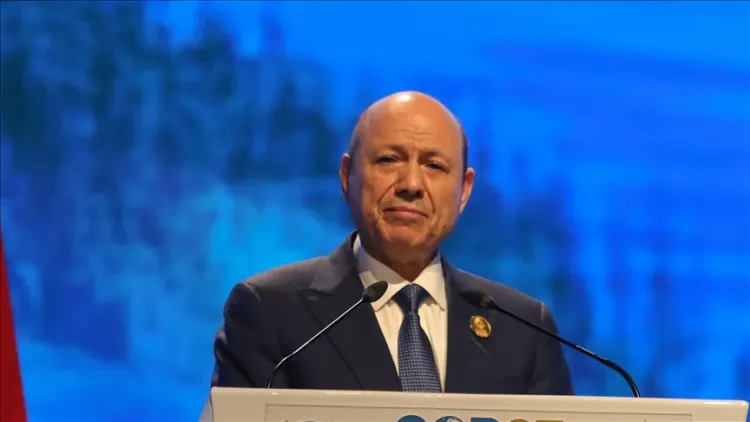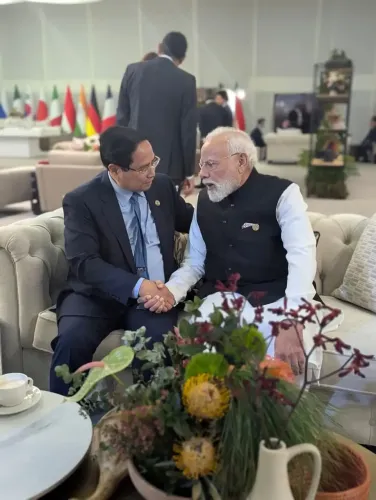Who is Yemen's New Prime Minister?

Synopsis
Key Takeaways
- Salem Saleh Bin Braik appointed as Yemen's new Prime Minister.
- Ahmed Awad bin Mubarak resigned citing constitutional limitations.
- The Yemeni government continues amidst a severe economic crisis.
- Ongoing civil war since 2014 drives instability in the region.
- All current ministers will retain their positions.
Aden (Yemen), May 4 (NationPress) - The Presidential Leadership Council (PLC) of Yemen has officially appointed Salem Saleh Bin Braik, the former Finance Minister, as the new Prime Minister of the country, succeeding Ahmed Awad bin Mubarak, who recently resigned.
This announcement, made by the state-run Saba news agency on Saturday, follows bin Mubarak's resignation, where he cited constitutional limitations and hurdles that obstructed his reform initiatives.
Bin Braik has been in the role of Finance Minister since 2019 and previously served as the Vice Finance Minister. Throughout his career, he has held several significant financial and administrative positions, as reported by Xinhua news agency.
The official announcement made it clear that all current Ministers will maintain their roles, while bin Mubarak will transition to an advisory position to the PLC President.
The decree's second article specifies that "the government members shall continue their duties according to the appointment decisions."
In his resignation, bin Mubarak pointed out the "numerous challenges" he encountered, including the inability to reform the government and enforce essential changes due to restricted constitutional authority.
Bin Mubarak, who assumed office in February 2024, previously held the positions of Yemen's Foreign Minister and Ambassador to the United States.
Yemen's ongoing civil war, which erupted in 2014 when Houthi forces captured the capital Sanaa, persists in creating instability, with the internationally recognized government functioning from Aden.
He also remarked on the significant obstacles faced during his term, particularly regarding the restriction of his constitutional powers to make necessary decisions for reforming state institutions and executing overdue cabinet changes.
This resignation takes place amid a deteriorating economic situation in Yemen, where the Yemeni rial is facing a historic plunge, exacerbating the hardships of citizens in a country the United Nations has deemed to be experiencing one of the worst humanitarian crises globally.
The Yemeni government has expressed its struggle against a severe financial deficit, primarily due to the ongoing suspension of oil exports, which has persisted since October 2022 due to Houthi assaults on oil facilities.
The Houthi faction has linked the restart of oil exports to a consensus on revenue distribution and the payment of public sector salaries nationwide.
Since 2014, Yemen has been embroiled in conflict, particularly following the Iran-backed Houthis' takeover of the capital, Sanaa, and much of the nation from the internationally recognized government.









